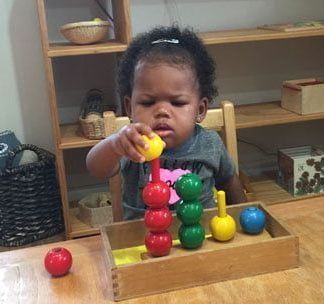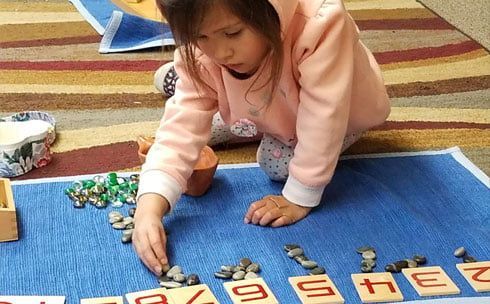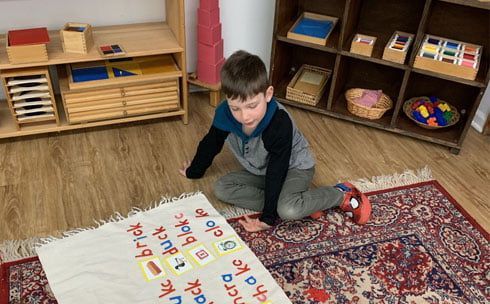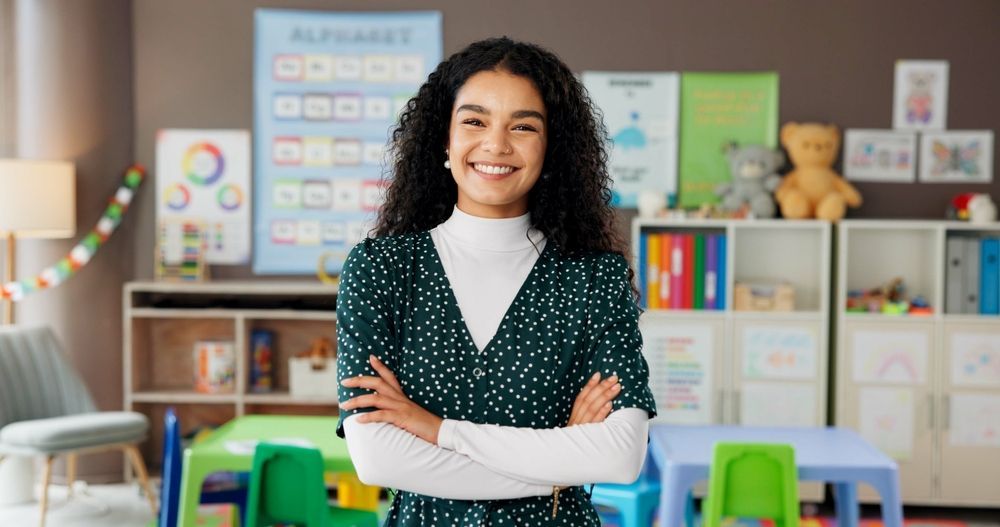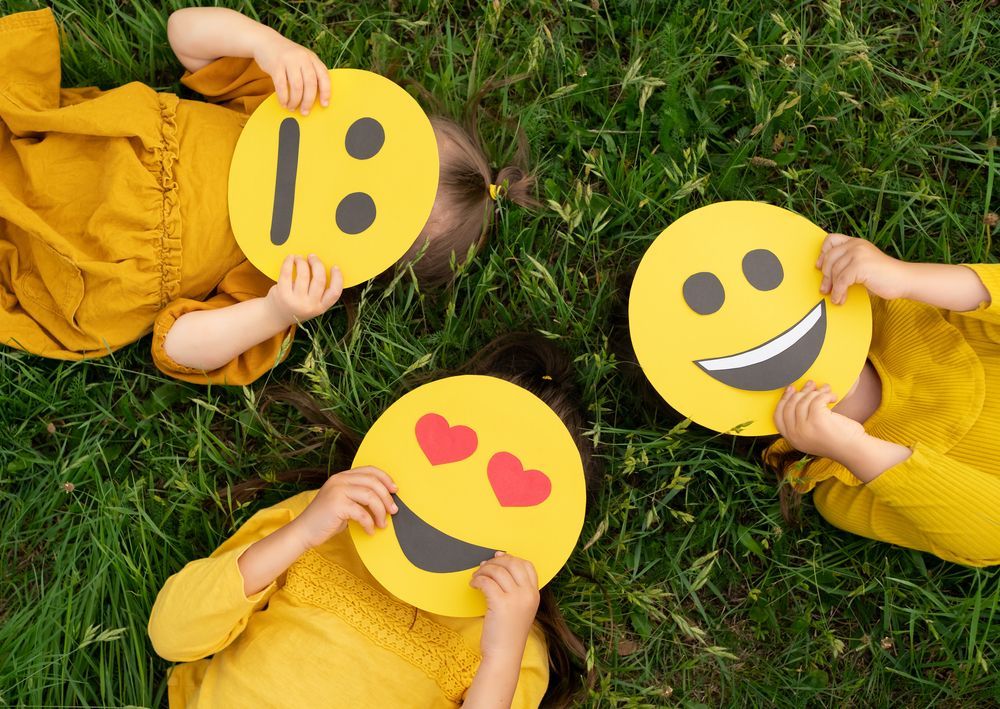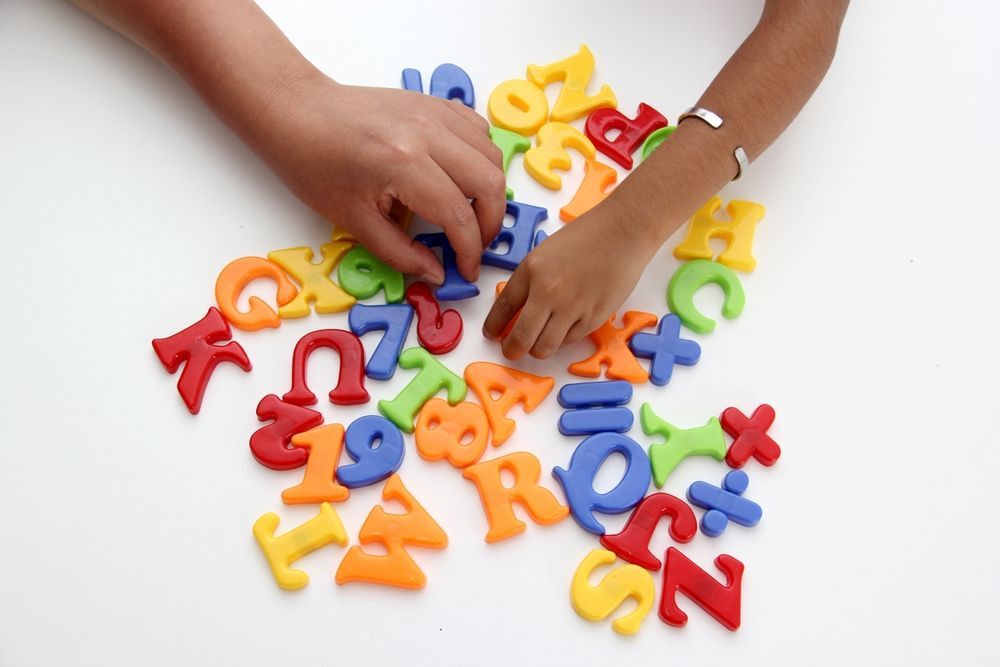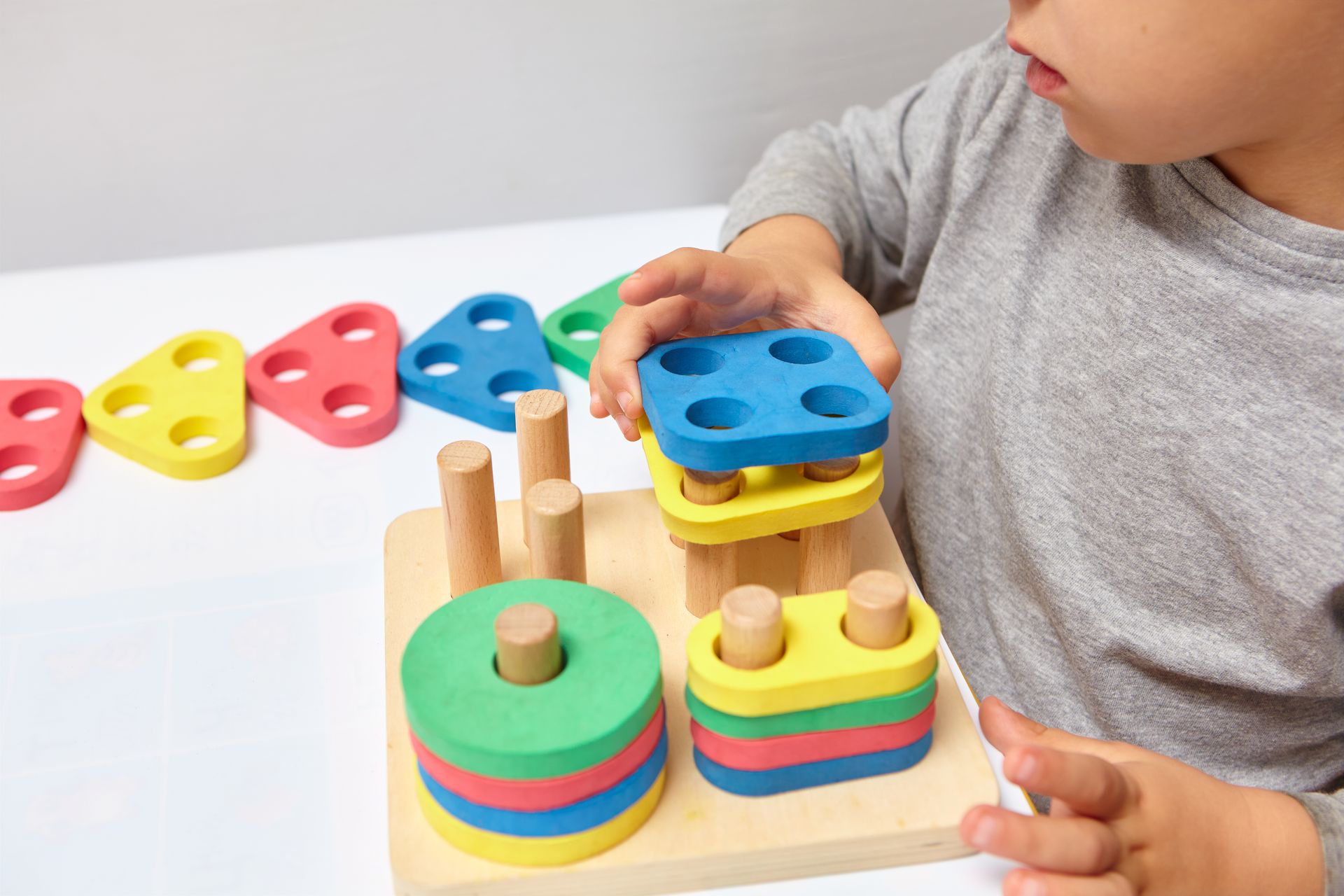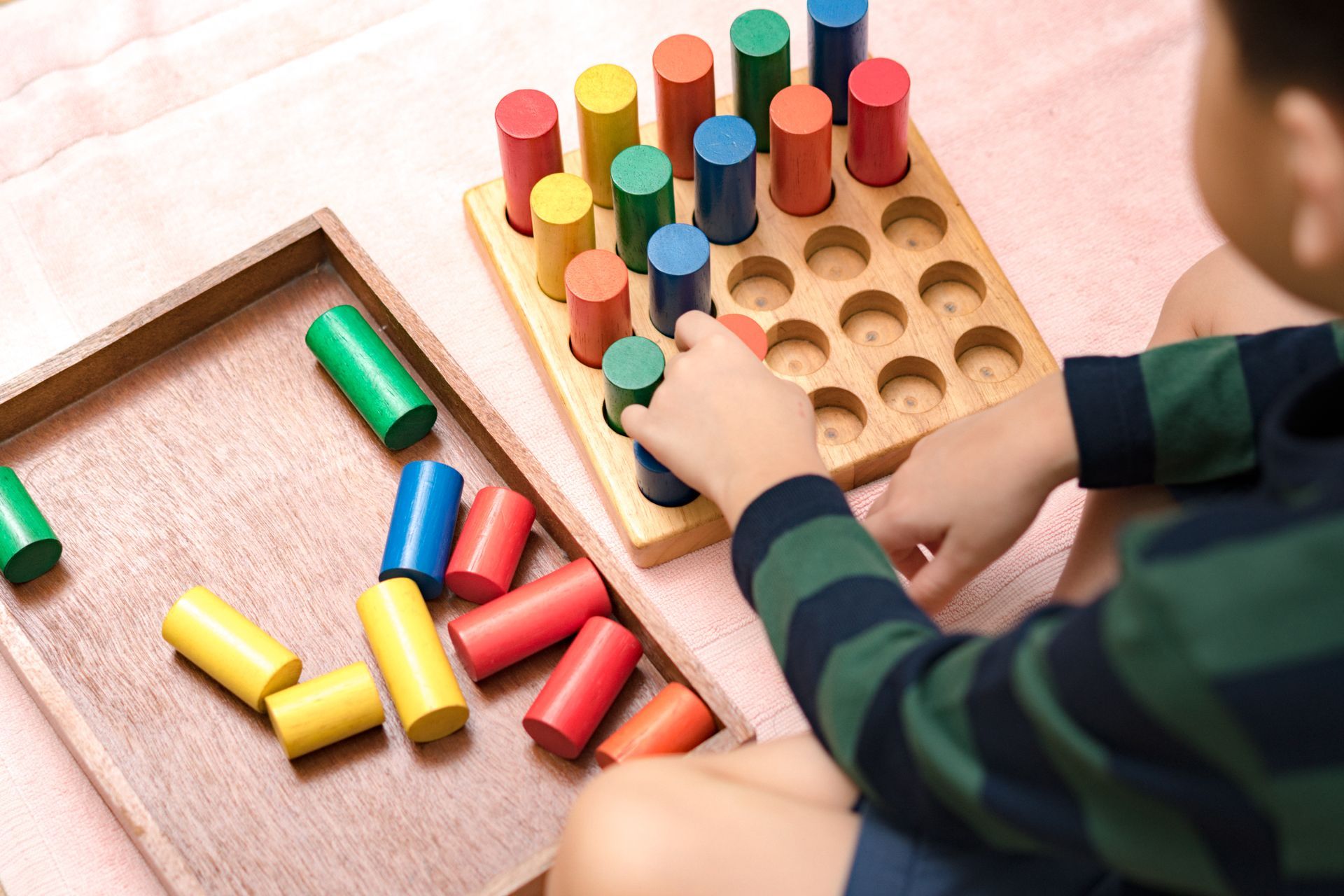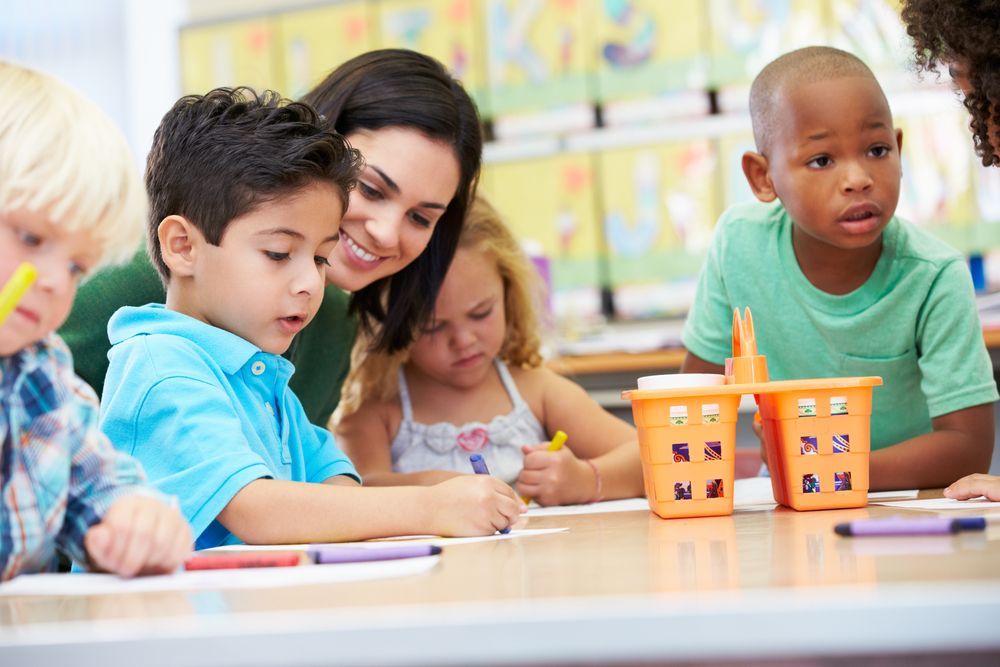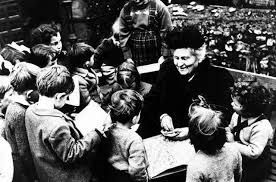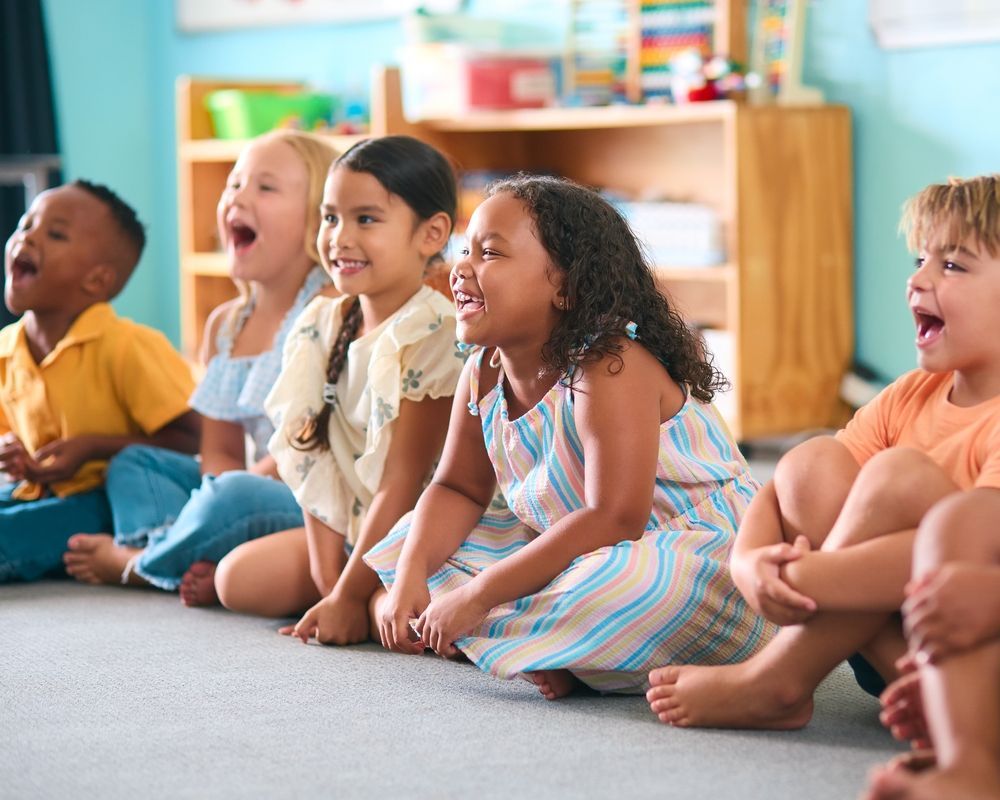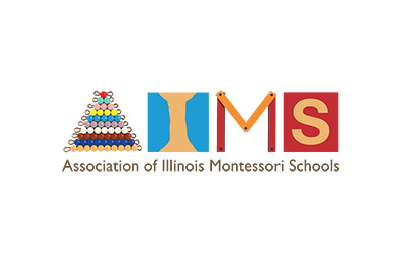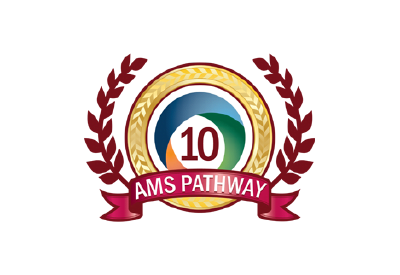How Montessori Schools Help Build Practical Life Skills
Share this Article:
Written by: Mansio Montessori
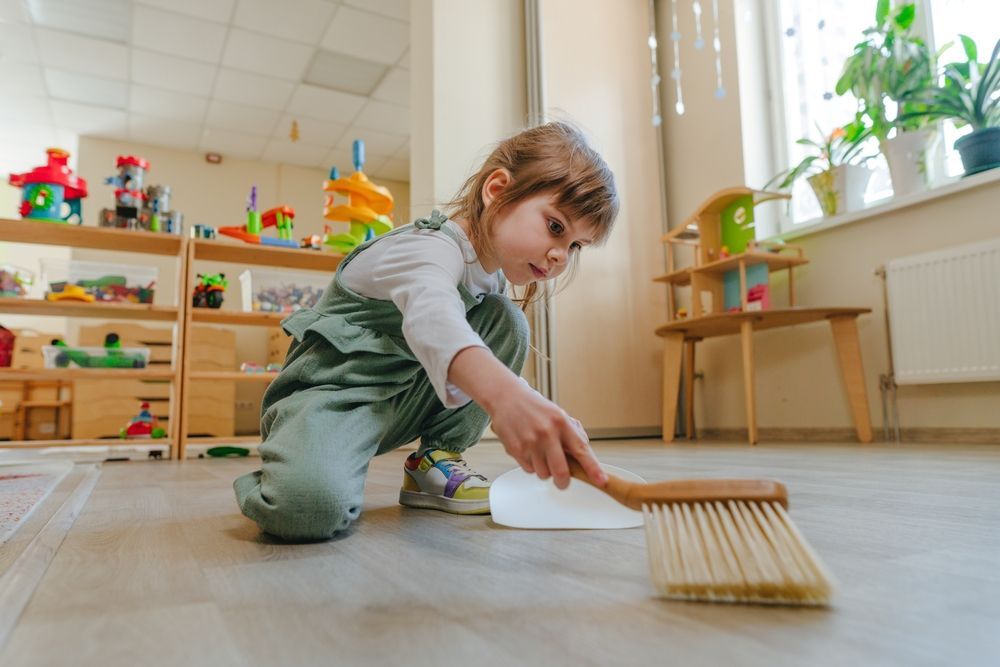
At the heart of the Montessori experience is the Practical Life Curriculum, one that is built around teaching children through independence. The Practical Life Montessori way of learning allows children to explore the world around them and learn not from typical teacher-focused lectures, but from what they see and do throughout their day.
What Is Practical Life?
Children are happiest when they are engaging in activities that have real-life meaning and value. To many people, these are ordinary tasks, like sweeping up the floor or watering the plants. Yet, as children develop independent skills, they can capture a wide range of knowledge that’s truly beneficial to them by engaging in those real-life activities. In the
Montessori classroom, the Practical Life curriculum helps to
create that foundation.
How Practical Life Montessori Curriculum Fosters Independence
Utilization of the
Practical Life curriculum simply means that children are focused on developing skills they will use during real life. For example, watering plants requires fine motor skills to properly hold and pour from the watering can. More so, this type of activity takes multiple steps, which also teaches a child how to process, plan, and accomplish more complicated tasks. Over time, this helps to build several key things in children, including a sense of responsibility, as well as being naturally motivated to be independent in all aspects of their lives, including in the community itself.
The Four Main Categories of Practical Life
There are four specific categories that fall in the Montessori Practical Life curriculum. Each one is a different lesson in key concepts that help support a
child’s educational path toward developing independence. Each of these areas helps to improve a child’s self-awareness, supporting them through multiple layers including how they impact others, actions, behaviors, and language.
Control of Movement
Children learn how to be aware of their bodies and the space around them in this area. Often a focus for ages 3 to 6, some of the activities applicable here may include the development of:
- Balance, such as learning to walk along a marked line while carrying items
- Coordination, such as carrying items and placing them on the table where they go
- Fine motor skills like learning to pour small beads into a container
Self Care
Care of self focuses on learning how to care for your own needs but also providing support for others who need help with their self-care needs. These are tasks that all people need to learn, and children are able to learn them sooner than many expect. Teachable moments throughout daily life enable self-care activities to become everyday practices, including:
- Manipulating buttons
- Being able to zip a jacket
- Getting dressed
- Washing their hands
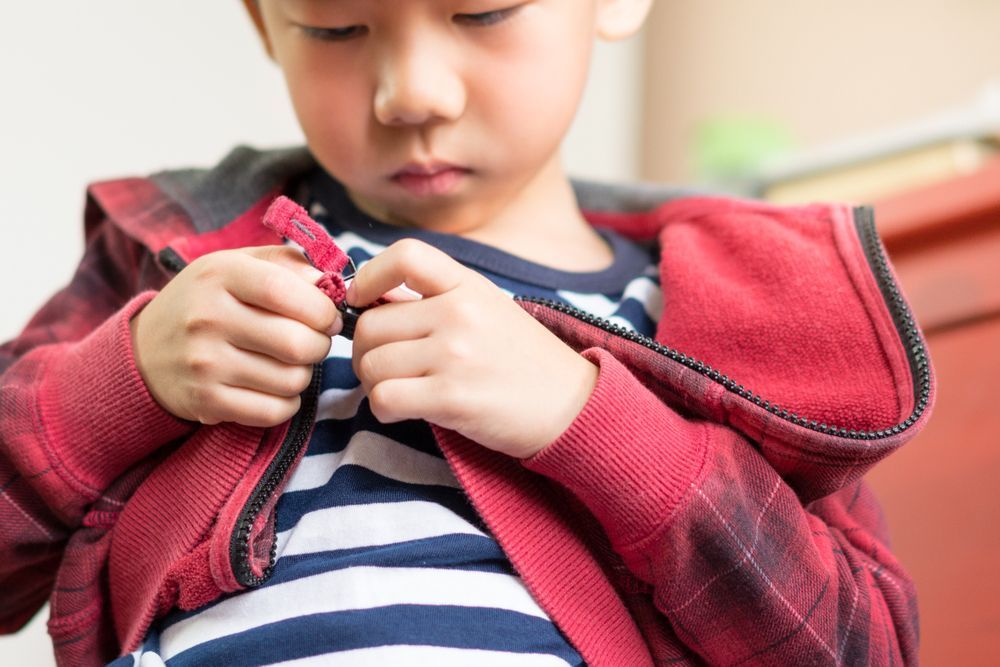
Grace & Courtesy
The focus here is on getting along with other people, from peers to adults. Often, it is ideal for children who are 3 to 5 to begin exploring by showing grace to each other. In a mixed-age classroom, which is common in the Practical Life Montessori curriculum, children can learn and demonstrate these skills, which will continue to support them throughout their lives. Some examples include:
- Learning to have patience with friends and waiting turns
- How to politely interrupt to ask a question
- Waiting in line or waiting for their turn
- Disagreeing with another person with respect
- Welcoming new people
Care of the Environment
The focus in this area is on supporting the community through things such as cleaning up, taking care of the environment, and being responsible for your own actions. The Montessori classroom has a strong focus on building community. Tasks may include:
- Learning how to clean up a spill
- Being able to sweep up the floor using a dustpan
- Helping to wash away the fingerprints on a window
- Helping to care for a pet in the classroom
- Learning how to water plants
Practical Life Sets Children Up for Academic & Life Success
Montessori Practical Life helps set children up for success by teaching them essential life skills. The activities they are participating in are actual activities they will utilize throughout their lifetime. This could include:
- Developing the ability to concentrate
- Increasing their independence
- Taking pride in completing tasks
- Developing a sense of respect for the community and their role in it
- Developing a sense of order
Types of Practical Life Exercises
Numerous methods exist to help children to develop practical skills for everyday life. Involving a child in multiple activities can support a lifetime of learning.
Demonstration
Demonstration is learning by showing. In this situation, for example, toddlers can learn how to steady a glass while pouring liquid into it. They are shown how to do so, see the experience, and can then learn from that experience.
Investigation
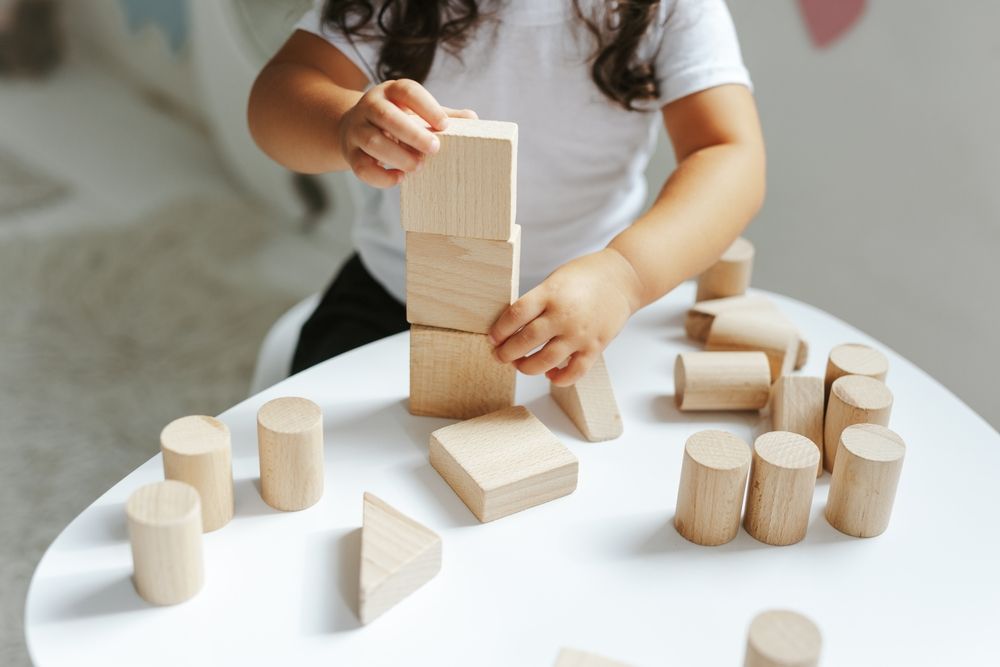
Investigation is an interesting concept because it applies to all areas of Montessori. Children learn by investigating, often prompted with a thought or idea, they can then explore the world around them by investigating. Investigation is a hands-on activity, which means they are developing skills while learning to better manipulate and understand the task at hand.
Problem-Solving
Problem-solving is a skill every person needs to use throughout their lifetime, but learning it isn’t simplistic. In the Montessori Practical Life curriculum, the objective is to teach by providing tools and allowing a child to troubleshoot, learn, and apply various strategies to solve the problem.
Interested in Montessori Education for Your Kids? Reach Out Today
Practical Life Montessori is just one of the many opportunities and benefits found at
Mansio Montessori.
Set up an appointment to speak to our team about how your children can benefit from Montessori Practical Life and the Montessori educational path.
